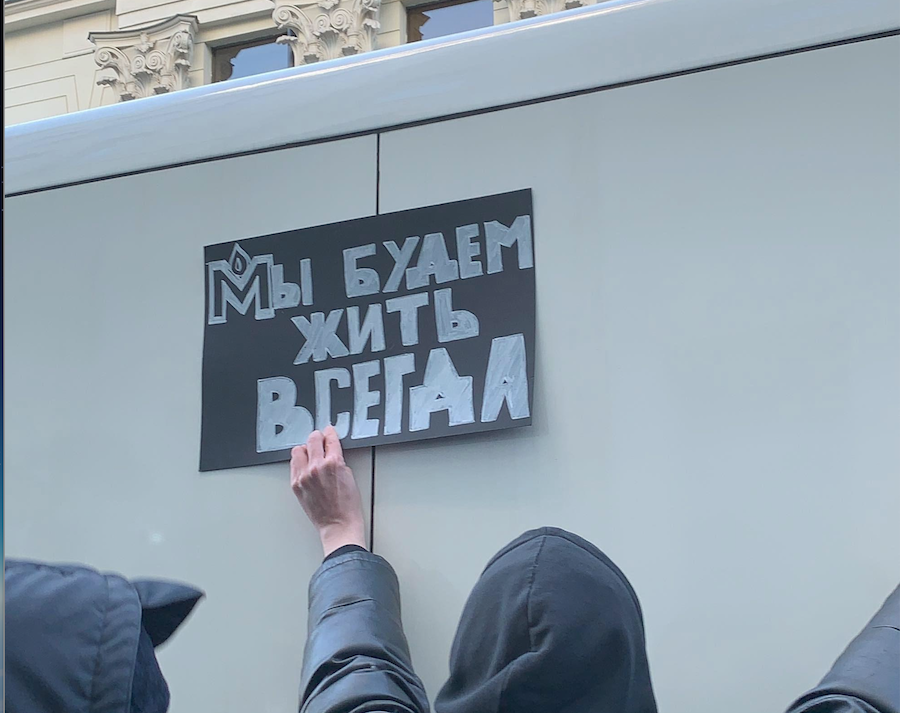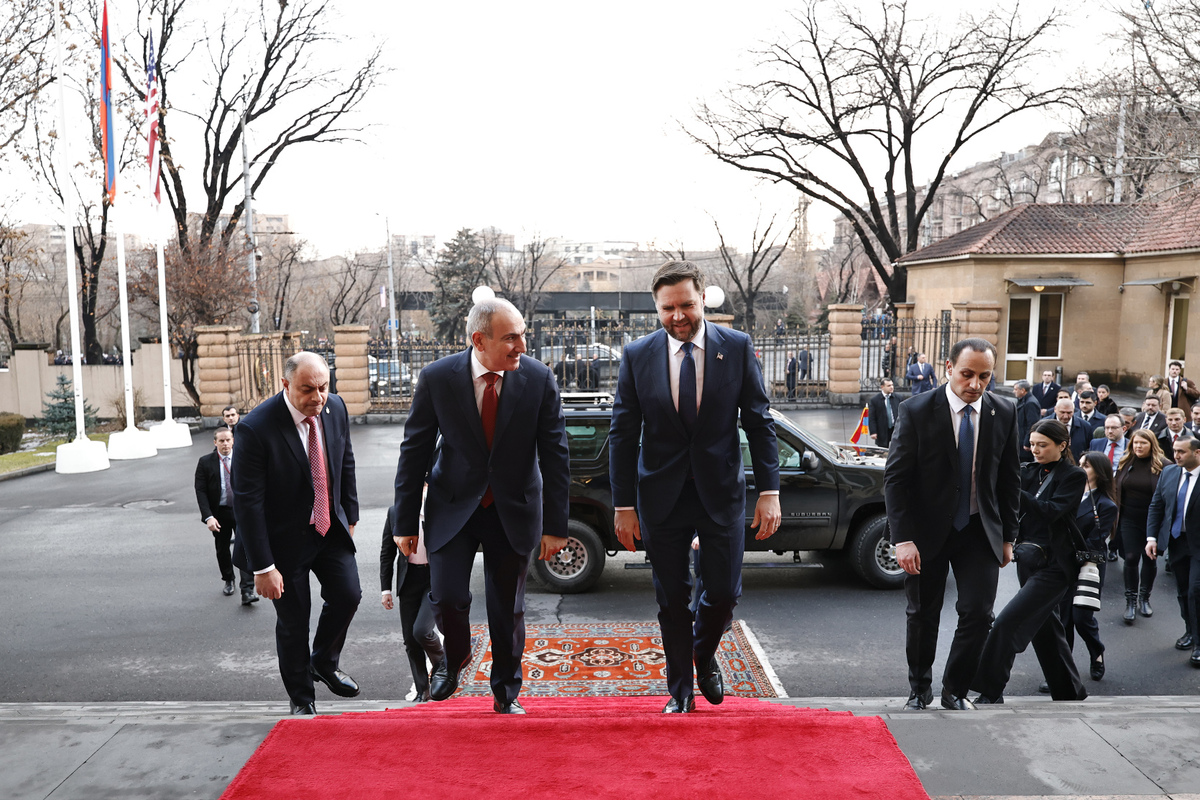"Creating false image of the USSR": why leading Memorial human rights group was closed in Russia
Closure of Memorial human rights organization in Russia
On December 28, the Supreme Court of Russia ruled that the international historical, educational, charitable, and human rights organization Memorial must be liquidated. According to the court’s decision, the organization violated Russia’s law on “foreign agents”. The closure of the organization caused a wide international resonance. “The historical window in Russia is closing” – this is how Western observers assessed the event
Memorial is the oldest and most respected human rights organization in Russia, created back in the Soviet Union. Initially, Memorial was engaged in the search and dissemination of information about the victims of Stalinist repressions in the USSR.
– According to the Society’s Charter, Memorial sets its goals as follows:
– Assistance to the development of civil society, legal consciousness of citizens and a democratic rule of law in order to prevent a return to totalitarianism;
– Assistance in popularizing democratic values and asserting individual rights;
– Perpetuating the memory of victims of political repression and restoring historical truth.
In 2014, Memorial was registered as a “foreign agent”. It was this status that served as the reason for the lawsuit against the organization in November 2021 filed by the General Prosecutor’s Office – Memorial was accused of violating the law on “foreign agents”. In particular, the organization did not properly adhere to this status and did not disclose funding sources.
- What does younger generation think about USSR? Opinion from Georgia. Video
- 13 million victims – Azerbaijan, Armenia, Georgia commemorate of Stalinist political repression. Video
In addition, the prosecutor at the court session accused Memorial of distorting history:
“Memorial, speculating on the theme of political repression of the 20th century, creates a false image of the USSR as a terrorist state, whitewashes and rehabilitates Nazi criminals and traitors to the Motherland, who have the blood of Soviet people on their hands. Why now, we, the descendants of the victorious people, are forced to watch the attempts to rehabilitate traitors to the Motherland and Nazi accomplices ?! Probably because someone pays for it”, Russian Novaya Gazeta quoted the speech of the prosecutor Alexei Zhafyarov.
The court satisfied the prosecutor’s claim, despite the fact that well-known public figures of Russia, including Nobel laureates Mikhail Gorbachev and Dmitry Muratov, as well as authoritative international organizations, spoke out in defense of Memorial.

Memorial’s lawyer Henry Reznik said that the decision was illegal and would certainly be appealed. He considers the reasons for such a court decision to be political, namely the fear that representatives of the authorities have about independent non-governmental organizations participating in public life.
“We see that independent media have been declared ‘foreign agents’. We see dubious criminal cases. Everything that is independent, including those that have independent funding, arouses the authorities’ suspicion”, the Caucasian Knot quotes Henry Reznik.
Another lawyer representing Memorial International, Mikhail Biryukov said that such a court decision was conditioned by the political situation and was intended to “find an enemy to punish”:
“After the ultimatum on NATO and the search for an external enemy, the authorities needed to find an internal enemy to enhance the effect, and, unfortunately, they found it in Memorial”, he said.
“Back to the totalitarian past” – international reaction
The decision of the Russian court caused a negative reaction in the world.
The presidents of Estonia, Latvia, Lithuania and Poland expressed their support for Memorial. In a joint statement published on the website of the President of Estonia, Alar Karis, Egils Levits, Gitanas Nauseda and Andrzej Duda expressed their concern about the rewriting of Russian history.
“The decision of the Supreme Court of Russia to liquidate Memorial is outrageous. The organization can be abolished, but history cannot be erased”, Latvian Foreign Minister Edgars Rinkevich wrote on Twitter.
The German government called the Russian court’s ruling incomprehensible, saying it would silence the voices of victims of political persecution.
Founded in 1989, Memorial has become a symbol of how the country is opening up to the world and to itself as it begins to explore the darkest chapters of its past, BBC correspondent Sarah Rainsford noted.
“The closure of Memorial is a vivid symbol of how under Vladimir Putin the country is returning to its previous state, rejecting as a hostile act any criticism – even of its history”.
The closure of a human rights organization is yet another example of the rapid destruction of Russian civil society, British newspaper The Guardian wrote in an editorial commentary.
“In place of Memorial, which spoke out eloquently and aggressively about mass atrocities, the state is creating a more manicured and careful presentation of the deaths of millions”, writes The Guardian’s Moscow correspondent Andrew Roth.
According to the journalist, the prosecutor, having declared in court that the organization presents the Soviet Union as a terrorist state, laid bare the political motives of the repressions against Memorial.
“Memorial has continued to do what it did since day one, while it is Russia that has changed again, perhaps ending a brief window when it would tolerate an independent reckoning of its past.”, The Guardian concludes.
The closure of Memorial concludes a year of massive repressions against the Russian opposition and the independent press, the American New York Times reminds its readers.
“Shutting down Memorial is also another step in Mr. Putin’s effort to recast Russia’s legacy as a series of glorious accomplishments and soften the image of the often-brutal Soviet regime”, the New York Times wrote.
According to NYT, Putin wants to convince Russians that the country is surrounded by enemies whose only desire is to ruin it.
“As such, the Kremlin wants the Russian public to focus on foreign foes instead of crimes committed by homegrown dictators”, the journalists say.
“This move is perceived as further evidence that President Putin is leading Russia back into its totalitarian past. According to the Levada Center polls, almost 50% of respondents in Russia are worried about the return to Soviet-style repressions”, a Moscow correspondent for The Times writes.
Memorial’s case is not over yet
The Supreme Court of Russia ruled to liquidate the international historical, educational, human rights organization – Memorial.
However, the Moscow City Court continues to consider another case – on the liquidation of the human rights society Memorial. It is a separate organization, part of Memorial International, but registered as a separate legal entity. It is also recognized as a “foreign agent”.
In November, Russian prosecutors filed lawsuits to liquidate both Memorial structures.




















